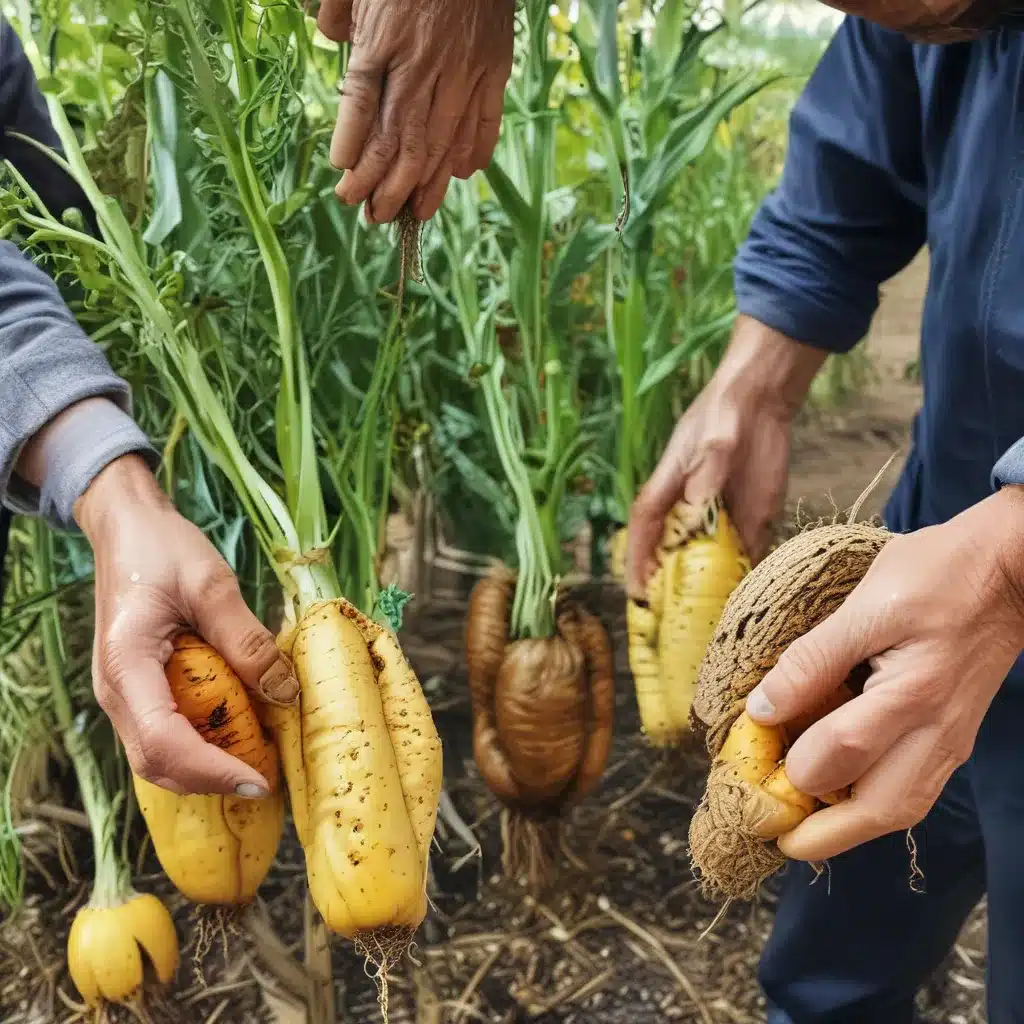
The Seeds of Nostalgia
I remember the first time I held a seed of an almost forgotten crop in my hand – a tiny emblem of potential and heritage that had narrowly escaped the clutches of oblivion. This wasn’t just any seed, but one of a traditional crop that my community had sown for generations, only to be overshadowed by the more recent allures of modern agriculture.
As a journalist dedicated to shedding light on underreported social issues, I’ve always been passionate about preserving our connections to the past. So when I stumbled upon these rare, heirloom seeds, it was like discovering a long-lost treasure. I could almost feel the weight of history in my palms, a tangible link to the resilient roots of our local food traditions.
Over the years, I’ve had the privilege of traveling to diverse corners of the world, meeting with farmers and seed keepers who have dedicated their lives to safeguarding these precious genetic legacies. Their stories have not only inspired me but have also fueled my determination to share this vital message with a wider audience.
Wheat’s Winding Road
Perhaps no crop embodies the transformative journey of our food system more than wheat. As the most widely grown crop on our planet, wheat has long been the “staff of life” for countless civilizations. Yet, in the relentless pursuit of industrial efficiency, this ancient grain has been radically reshaped – to the detriment of our health, our environment, and the resilience of our local food traditions.
The story of wheat’s transformation is a complex one, marked by both triumph and tragedy. From the Romans planting easy-to-maintain wheat varieties to reinforce their supply lines, to the Soviet Union instituting a uniform agricultural approach across Eastern Europe, the once-diverse tapestry of wheat varieties has been steadily homogenized. And as modern wheat has become increasingly dependent on synthetic fertilizers and herbicides, the robust, majestic wheats that nourished our ancestors have found themselves teetering on the brink of extinction.
But amidst this sobering narrative, a glimmer of hope has emerged. Across the globe, a growing movement of farmers, seed keepers, and food enthusiasts are working tirelessly to revive the forgotten traditions of heirloom wheat cultivation. And at the heart of this resurgence lies the power of resilient, landrace varieties – ancient grains that have coevolved with the land and the people who have tended them for millennia.
Rediscovering Resilience
As I’ve immersed myself in this world of heirloom grains, I’ve been struck by the inherent resilience that these crops possess. Unlike the high-yielding, chemically dependent wheat varieties that dominate modern agriculture, landrace wheats have evolved to thrive in the organic fields of traditional farms, requiring no synthetic inputs to yield bountifully. These ancient grains are not only gluten-safe and rich in flavor and nutrition, but they also possess an innate adaptability that allows them to weather the unpredictable challenges of our changing climate.
It’s a testament to the foresight and wisdom of our ancestors, who understood the importance of cultivating a diverse tapestry of crop varieties. By preserving a genetic repository of heirloom wheat species, from delicious, gluten-safe einkorn to drought-tolerant durum, they have gifted us with a wealth of resilience – a resilience that has the power to transform the way we grow, consume, and relate to our food.
As I’ve traveled the globe, meeting with the few remaining peasant farmers who continue to safeguard these precious heirlooms, I’ve been humbled by their dedication and the depth of their connection to the land. They are not merely growers, but custodians of a lineage that stretches back thousands of years, their hands bearing the calluses of generations who have toiled to nourish their communities.
Weaving a Tapestry of Tradition
But the story of heirloom wheat is not just about agricultural practices – it’s a tapestry of culture, history, and the very essence of what it means to be human. As I’ve dove deeper into this world, I’ve been captivated by the rich tapestry of folk traditions, mythologies, and rituals that have long been woven into the cultivation and consumption of these ancient grains.
In the ancient Near East, for example, the cultivation of wheat was intimately tied to the sacred rituals of matriarchal societies, with women playing a central role in the sowing, harvesting, and processing of the grain. The grains themselves were imbued with symbolic meaning, serving as offerings to the divine and as nourishment for both body and soul.
Even in more modern times, the baking of traditional breads and pastries has remained a cornerstone of community life, a shared experience that transcends cultural boundaries. As I’ve watched skilled bakers coax the nuanced flavors from heirloom wheat varieties, I’ve been struck by the way these practices serve to anchor us to our collective past, reminding us of the enduring power of human connection.
A Call to Action
And so, as I stand here today, holding a handful of heirloom wheat seeds in my hands, I can’t help but feel a deep sense of reverence and responsibility. These are not just grains – they are living embodiments of our resilient roots, a testament to the ingenuity and adaptability of our ancestors.
It is our duty, as stewards of this precious legacy, to ensure that these heirloom crops do not slip into the void of oblivion. By embracing the traditions of heirloom wheat cultivation and consumption, we can not only safeguard the future of our local food systems but also reconnect with the rich tapestry of our shared history.
I invite you to join me on this journey of rediscovery, to explore the Thornap ple CSA and the wealth of heirloom varieties it has to offer. Together, we can cultivate a future where the resilient roots of our food traditions flourish, nourishing both our bodies and our souls.



